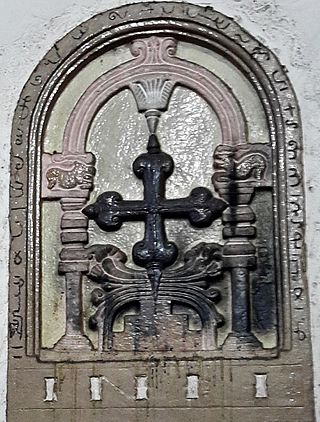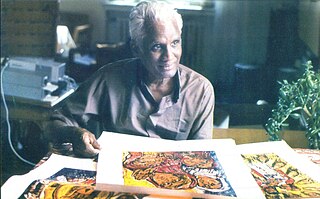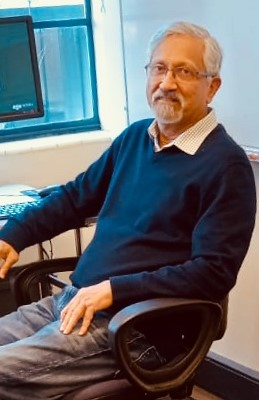Kamma is a largely Hindu caste from South India. The community of Kammas is believed to have originated from agriculturists of the Kammanadu region of the erstwhile Guntur district and Ongole division in Andhra Pradesh. Propelled by their military activity in the Vijayanagara Empire,Kammas are believed to have spread out from the region during the Vijayanagara period,followed by some in-migration during the British period and out-migration again during the twentieth century. Today they are regarded as one of the richest groups in Andhra Pradesh and are a dominant caste from Coastal Andhra with socio-economic and political prominence throughout the Telugu-speaking regions of India.

Robert Caldwell was a British missionary and linguist.

Christianity is India's third-largest religion with about 26 million adherents,making up 2.3 percent of the population as of the 2011 census. The written records of St Thomas Christians mention that Christianity was introduced to the Indian subcontinent by Thomas the Apostle,who sailed to the Malabar region in 52 AD.
Deshastha Brahmin is a Hindu Brahmin subcaste mainly from the Indian state of Maharashtra and North Karnataka. Other than these states,according to authors K. S. Singh,Gregory Naik and Pran Nath Chopra,Deshastha Brahmins are also concentrated in the states of Telangana (which was earlier part of Hyderabad State and Berar Division),Andhra Pradesh and Madhya Pradesh (Which was earlier part of Central Provinces and Berar) Historian Pran Nath Chopra and journalist Pritish Nandy say,"Most of the well-known saints from Maharashtra,Karnataka and Andhra Pradesh were Deshastha Brahmins". The mother tongue of Deshastha Brahmins is either Marathi,Kannada or Telugu.

Telugu Brahmins are Telugu-speaking Brahmin communities native to the Indian states of Andhra Pradesh and Telangana. They fall under the Pancha Dravida Brahmin classification of the Brahmin community in India. Telugu Brahmins are further divided into sections like Vaidiki,Niyogi,Deshastha,Dravida,Golkonda Vyapari among others.
Chuhra,also known as Bhanghi and Balmiki,is a Dalit caste in India and Pakistan. Populated regions include the Punjab region of India and Pakistan,as well as Uttar Pradesh in India,among other parts of the Indian subcontinent such as southern India. Their traditional occupation is sweeping,a "polluting" occupation that caused them to be considered untouchables in the caste system.

Victor Premasagar (1927–2005) was the fourth successor of Frank Whittaker as Bishop in Medak. He was an Indian churchman and Old Testament scholar who made major contributions to research on the Old Testament and to the field of theology. Premasagar's articles appeared in the Expository Times (1966),the Vetus Testamentum (1966),the International Review of Mission (1972),and the Indian Journal of Theology (1974) and cited in major works relating to the theme of Promise in the Bible and critical works on Psalms LXXX and the Hebrew word HOQ in the Tanakh.
Telaga is a land-owning agrarian community primarily found in the Coastal Andhra region of India. Telaga is a subcaste of the Kapu community,with both terms often used interchangeably. They are classified as a Forward caste. Historically,they were a warrior caste known for their honour and bravery.

Vasireddy Venkatadri Nayudu was the hereditary zamindar of Chintapalli,later Amaravathi,under the Nizam of Hyderabad and later the British East India Company. He had under his control 552 villages and towns located in Guntur and Krishna districts and their environs. Discontented with the treatment by the East India Company,he abandoned his hereditary palace at Chintapalli and established a new palace and a town called Amaravathi at the site of the ancient Satavahana capital next to Dharanikota. During the construction of the town,his workers unearthed the Amaravati Stupa,though their activities also caused significant damage to the site.
Protestants in India are a minority and a sub-section of Christians in India and also to a certain extent the Christians in Pakistan before the Partition of India,that adhere to some or all of the doctrines of Protestantism. Protestants in India are a small minority in a predominantly Hindu majority country,but form majorities in the north-eastern states of Meghalaya,Mizoram and Nagaland. They are also significant minorities in Punjab region,Konkan region,Bengal,Kerala and Tamil Nadu,with various communities in east coast and northern states. Protestants can trace their origins back to the Protestant Revolution of the 16th century. There are an estimated 20 million Protestants and 16 million Pentecostals in India.

Christianity is the third-largest practiced religion in Kerala,accounting for 18% of the population according to the 2001 Indian census. According to traditional accounts,Thomas the Apostle sailed to the Malabar region in 52 AD and introduced Christianity to the area. Although a minority,the Christian population of Kerala is proportionally much larger than that of India as a whole. A significant portion of the Indian Christian population resides in the state.
K. Devasahayam was President of the Andhra Evangelical Lutheran Church from 1965 to 1969.

Louis F. Knoll was an American Baptist missionary who taught Christian Ethics at the Andhra Christian Theological College,Hyderabad,affiliated with the Senate of Serampore College (University).
David Neal Lorenzen is a British-American historian,scholar of Religious studies,essayist,and emeritus professor of South Asian history at the Centre for Asian and African studies,El Colegio de México in Mexico City.
Karanam or Karnam was an office and title native to the Indian states of Andhra Pradesh and Telangana. Traditionally,Karanam was an official who maintained the accounts and records of the villages and collected the taxes. Karanam/Kombattulas were one of the two village-level administrative posts that existed in Andhra along with 'Munasabu' (Munsiff). The Karanam/Kombattulas kept an elaborate system of village accounts.

P. Solomon Raj(21 February 1921 - 28 December 2019) was a pastor of Protestant Andhra Evangelical Lutheran Church Society headquartered in Guntur with major contribution to theological research and arts. Old Testament scholar Victor Premasagar wrote about Raj as a pastor,professor of communications,creative artist,sculptor,poet and a theological writer.
William Powlas Peery was a Pastor of the Evangelical Lutheran Church in America/Andhra Evangelical Lutheran Church who taught theology at ecumenical institutions,the Andhra Christian Theological College at its erstwhile location in Rajahmundry and also at the United Theological College,Bangalore both of which are affiliated to the nation's first University,the Senate of Serampore College (University),Serampore.

Saint Thomas Anglicans are the Saint Thomas Christian members of the Church of South India (CSI);the self-governing South Indian province of the Anglican Communion. They are among the several different ecclesiastical communities that splintered out of the once undivided Saint Thomas Christians;an ancient Christian community whose origins goes back to the first century missionary activities of Saint Thomas the Apostle,in the present-day South Indian state of Kerala. The Apostle,as legend has it,arrived in Malankara in AD 52.
Pius Malekandathil is an Indian historian and a priest of the Syro-Malabar Church. He is currently the Protosyncellus of the Eparchy of Kothamangalam. He is a retired professor at the Centre for Historical Studies,Jawaharlal Nehru University,New Delhi.

Sekhar Bandyopadhyay is an Indian historian and a Fellow of the Royal Society Te Apārangi. Bandyopadhyay is known for his research on the Dalit caste of Bengal.







